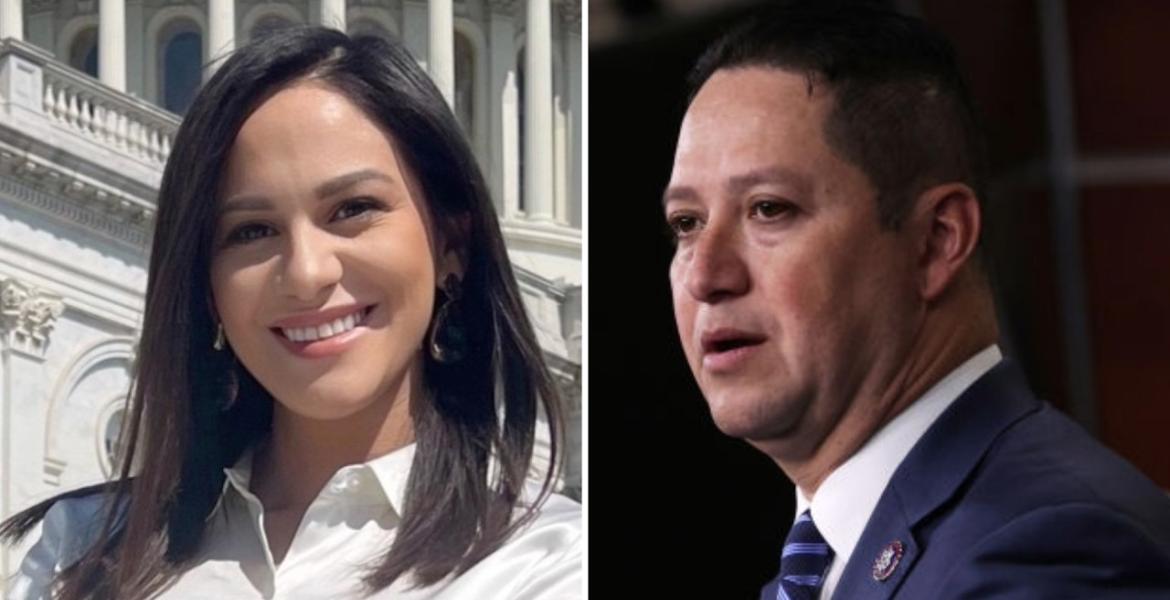SAN ANGELO, TX — "If anyone is going to challenge the legislation the Texas Legislature and governor make law, it will usually involve a lawsuit against a State agency,” explained Justice Scott Field, the current Texas Third Court of Appeals Justice, Place 3.
Field is facing a challenge from Democrat Chari Kelly, an Assistant District Attorney in Travis County. In Texas, we elect our State judges.
State Rep. Drew Darby agrees with Field’s assessment of what is at stake for Republicans in Texas. He frequently tells constituents that the Third Court of Appeals is the backstop for the Texas Legislature.
Likening the State Third Court of Appeals to what happens on the federal level, Field explained, “We’re the D.C. circuit for the State of Texas.”
The Austin-based Third Court of Appeals will hear cases involving state level policy just as the U.S. Court of Appeals for the District of Columbia will hear cases involving federal policy, Field explained.
Every challenge to Republican legislation, whether it is changes to school finance or frontal assaults from the left in this country’s culture wars, may make it to the Austin-based Third Court of Appeals. The court also hears criminal appeals, like this court did in 2017 when the all-Republican court affirmed a Tom Green County district court’s verdict of Justin Riordan of Miles, who was convicted of aggravated sexual assault of a child.
Republican Scott Field wants to keep his court firmly in control of the Republican Party, steeped in conservative jurisprudence. But he has a hard-charging and capable Democrat challenger this year in Kelly. Kelly served four years as a Judge Advocate General in the U.S. Army, but also earned her jump wings. She’s Airborne!
Kelly, in an interview with LIVE!, didn’t view the role of the Third Court of Appeals as simply a backstop to the laws passed with the Texas Legislature.
“The law is the law,” she said. The law is also nonpartisan, she said.
She explained the State of Texas Constitution, the precedents set by decisions by courts and the Texas Supreme Court or U.S. Supreme Court, should determine her decisions, not ideological orthodoxy.
“Right now we have a Republican legislature, a Republican Third Court of Appeals, a Republican Supreme Court, and every elected official in Tom Green County is Republican so I don’t think this is a very diverse way of thinking,” she suggested. “But I always go back to knowing that the law is the law.”
“There are very strict rules for review of cases and their constitutionality. I’ve argued my own appeals on the Third Court when the defense has challenged the constitutionality of a lower court decision on a statute [passed by the Republican legislature],” she said. “It’s not like today the Republican justices there are putting a rubber stamp on everything the Republicans in control do,” she said.
Field said that he role of the court is to stay out of political decisions. Without affirming or not affirming the Texas Supreme Court’s decisions on Robin Hood Laws in Texas public school finance, he noted that this is one area where State courts have grappled with a very complex issue.
The last round of school finance lawsuits bypassed the Third Court of Appeals and went directly to the Texas Supreme Court. In 2016, the Texas Supreme Court upheld the Texas Legislature’s public school funding system was constitutional. Multiple school districts had sued the State over how the property taxes were divided and distributed, and over the amount of money the State of Texas spent on public schools.
We asked Field, had the Supreme Court not affirmed the Legislature’s school finance plan, and proposed an alternative process, would that not be legislating from the bench?
“Often people will try to control State action through lawsuits. And that becomes the issue for us, because we cannot allow that. You can correct State action. If [the State action under review] is unconstitutional, it’s unconstitutional, of course. But we can’t be the legislative body. We can’t make policy decisions.”
Directly addressing school finance, Field noted:
“The Texas Supreme Court decided school finance is not a political issue. Reasonable minds can differ on that, under the case law. But school finance is a mess and it’s a hard issue. I don’t know the answer to it. But it’s a problem I wish the legislature would figure out rather than it involving the court system.”
The 2016 Texas Supreme Court Decision affirmed the Texas Legislature’s band-aided approach to school finance.
The Third Court of Appeals hears both civil and criminal appeals in Central Texas. The court’s jurisdiction stretches across 24 counties from La Grange in Fayette County to Mertzon in Irion County, and from Coke County to Comal County (see map). The court has one chief justice and five additional justices.
[[{"fid":"44888","view_mode":"default","fields":{"format":"default","field_file_image_alt_text[und][0][value]":"A map of the jurisdictions of the Texas courts of appeals. The Third Court of Appeals in in Central Texas, annotated by the color of green. ","field_file_image_title_text[und][0][value]":"A map of the jurisdictions of the Texas courts of appeals. The Third Court of Appeals in in Central Texas, annotated by the color of green. "},"type":"media","field_deltas":{"1":{"format":"default","field_file_image_alt_text[und][0][value]":"A map of the jurisdictions of the Texas courts of appeals. The Third Court of Appeals in in Central Texas, annotated by the color of green. ","field_file_image_title_text[und][0][value]":"A map of the jurisdictions of the Texas courts of appeals. The Third Court of Appeals in in Central Texas, annotated by the color of green. "}},"attributes":{"alt":"A map of the jurisdictions of the Texas courts of appeals. The Third Court of Appeals in in Central Texas, annotated by the color of green. ","title":"A map of the jurisdictions of the Texas courts of appeals. The Third Court of Appeals in in Central Texas, annotated by the color of green. ","class":"media-element file-default","data-delta":"1"}}]]
Above: A map of the jurisdictions of the Texas courts of appeals. The Third Court of Appeals is in Central Texas, annotated by the color of green.
Field, the Republican incumbent, grew up outside of College Station and graduated from Texas A&M University summa cum laude with a B.A. in Political Science. He earned his law degree from the University of Texas School of Law, graduating with honors and named to the Order of the Coif. More on Scott Field at his campaign website.
Kelly, the Democrat challenger, earned her B.A. in Political Science and Criminology from the University of Florida and her law degree from the University of Texas School of Law. She served as a Judge Advocate General in the U.S. Army, separating from the military at the rank of captain after four years of service. She served as the Assistant Criminal District Attorney for Comal County in New Braunfels before taking a position in Travis County in Austin, serving as an Assistant District Attorney. More on Chari Kelly at her campaign website.
Election Day is November 6.
Subscribe to the LIVE! Daily
Required






Post a comment to this article here: